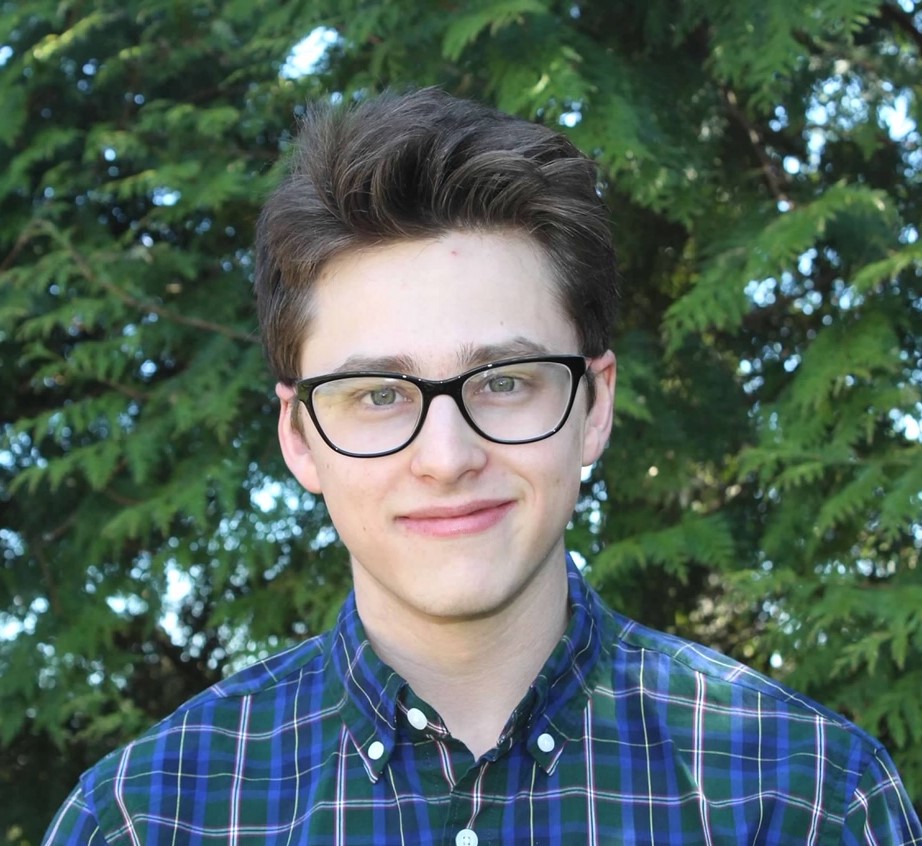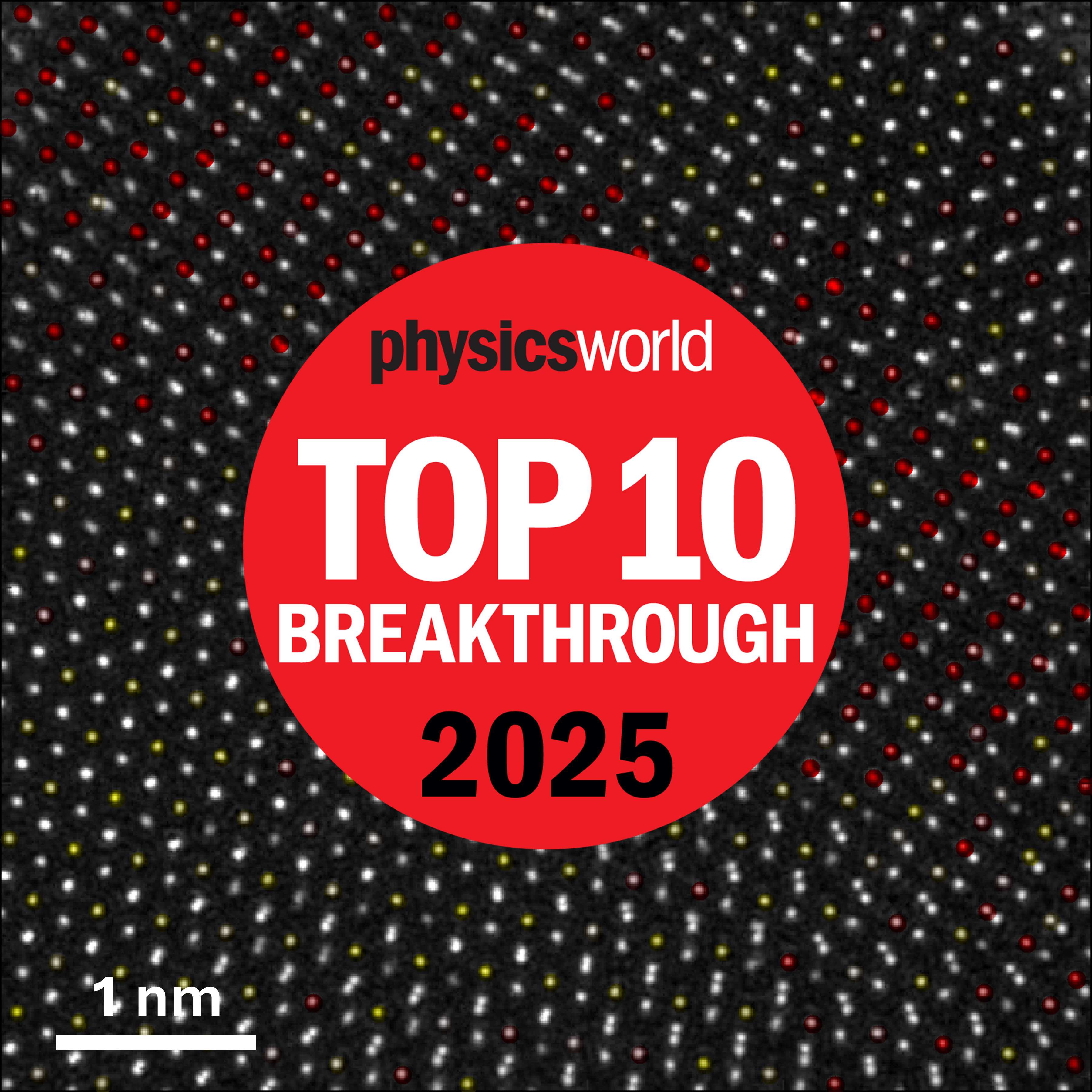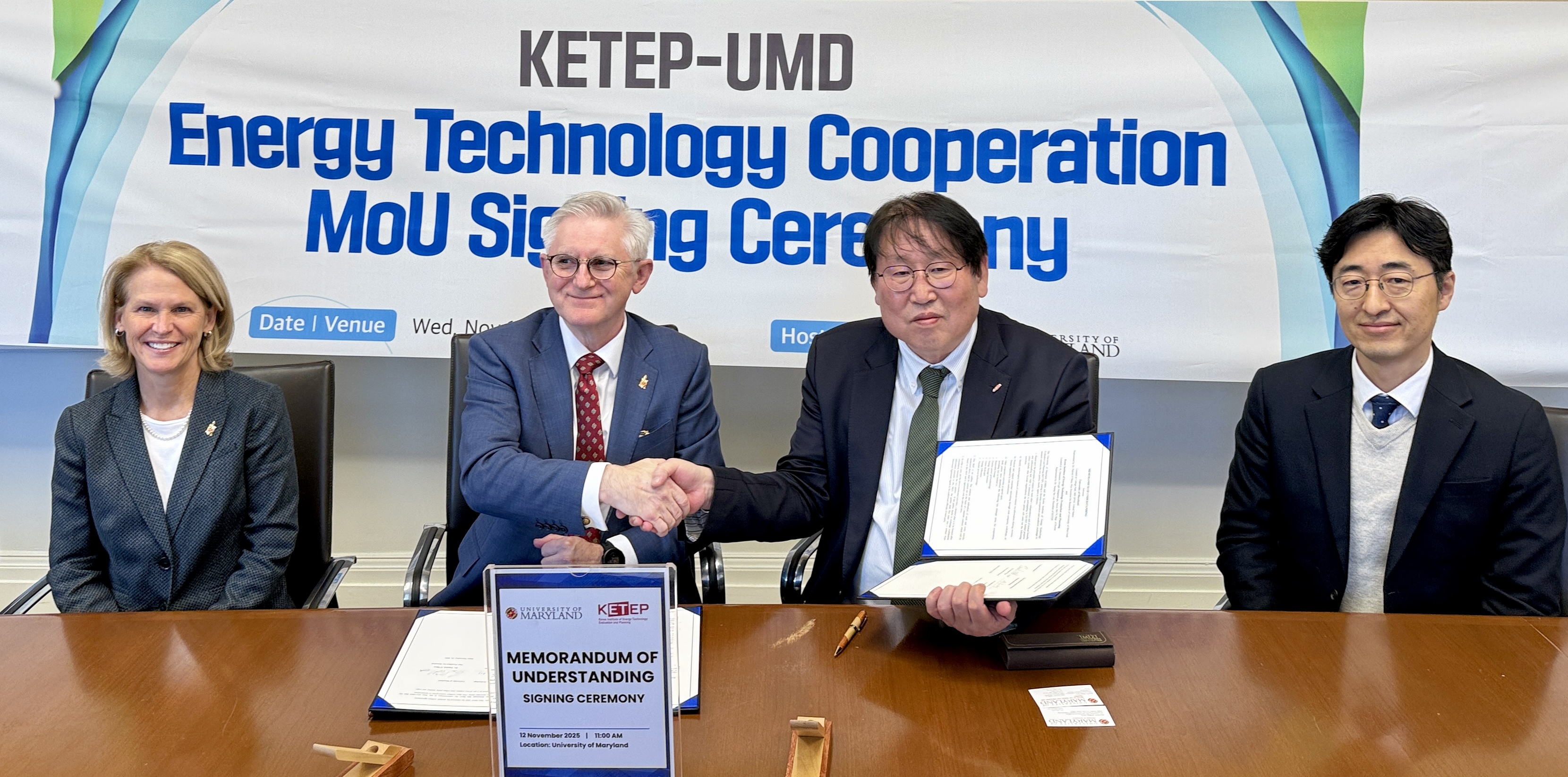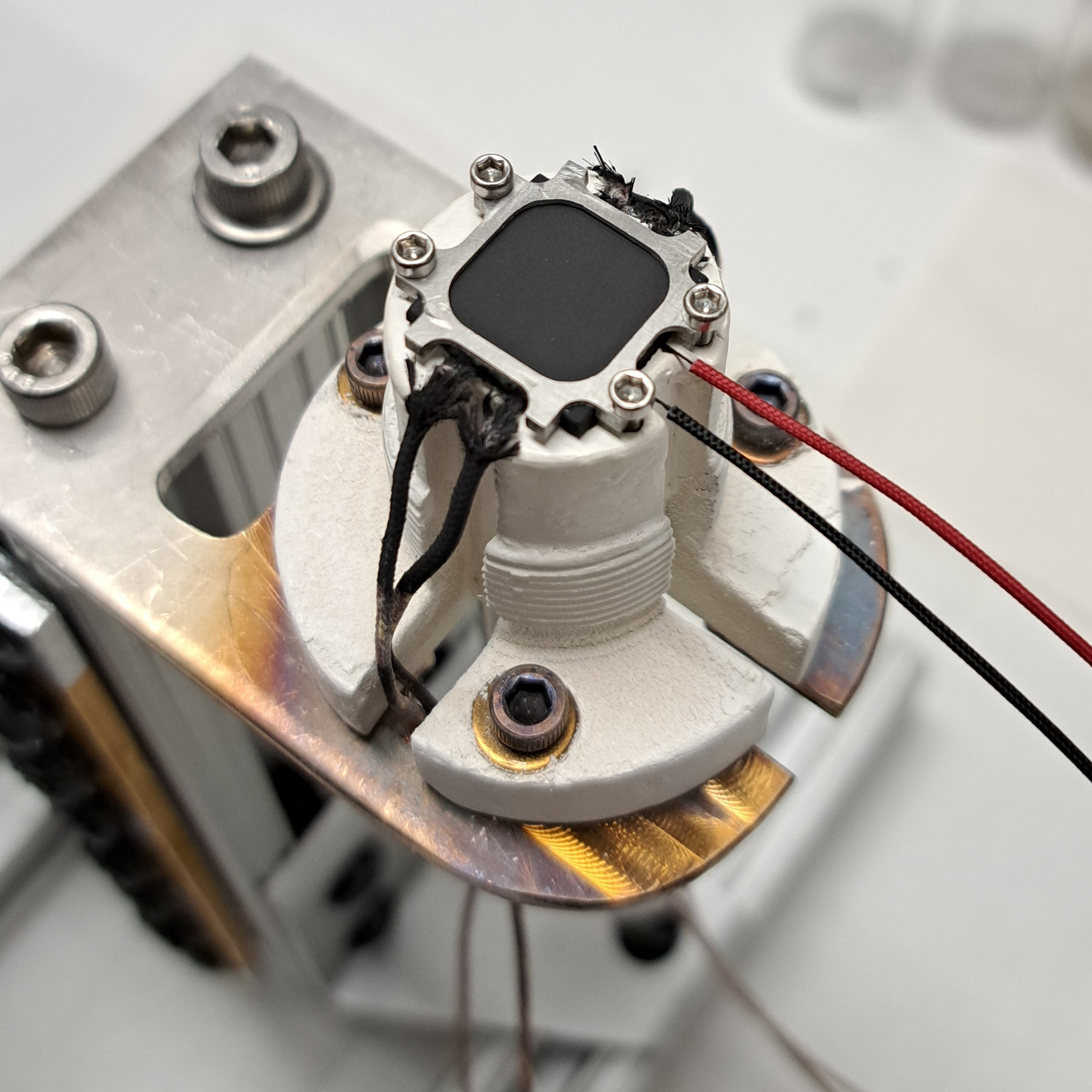News Story
Four Terps Named 2020 Goldwater Scholars

For the third year in a row, the University of Maryland’s (UMD) four undergraduate nominees have been awarded scholarships by the Barry Goldwater Scholarship and Excellence in Education Foundation, which encourages students to pursue advanced study and research careers in the sciences, engineering and mathematics.
UMD’s 2020 Goldwater Scholars are:
- Jesse Matthews, a junior chemical engineering and mathematics dual-degree student who is also a member of the University Honors program in the Honors College
- Scott Moroch (pictured left), a junior majoring in physics with a research appointment in materials science and engineering (MSE), advised by MSE Assistant Professor Tim Koeth
- Seungtaek Daniel Oh, a junior majoring in biological sciences with a specialization in cell biology and genetics who is also a member of the Integrated Life Sciences program in the Honors College
- Pavan Ravindra, a junior biochemistry and computer science dual-degree student who is also a member of the Integrated Life Sciences program in the Honors College
Over the last decade, UMD’s nominations yielded 33 scholarships—the most in the nation, followed by Stanford University with 32. Harvard University, the Massachusetts Institute of Technology and Johns Hopkins University also rank in the top 10.
Matthews, Moroch, Oh and Ravindra were among the 396 Barry Goldwater Scholars selected from 1,343 students nominated nationally this year. Goldwater Scholars receive one- or two-year scholarships that cover the cost of tuition, fees, books and room and board up to $7500 per year. These scholarships are a stepping-stone to future support for the students’ research careers. The Goldwater Foundation has honored 70 UMD winners and five honorable mentions since the program’s first award was given in 1989.
ABOUT SCOTT MOROCH
Moroch, a native of Wayne, N.J. designed his own particle accelerator when he was still in high school. Since enrolling at Maryland, he has been working on the Department of Materials Science and Engineering's (MSE) cyclotron with Timothy Koeth, an MSE Assistant Professor with a dual appointment in the Institute for Research in Electronics and Applied Physics, who is also the former director of the UMD Nuclear Reactor and Radiation Facilities.
A cyclotron is a type of particle accelerator that won its inventor the Nobel Prize in physics in 1939. The beams that cyclotrons produce, while potentially dangerous, accomplish wondrous things—killing cancer cells with extreme precision, for instance, or changing atoms into a different element altogether.
Moroch is working with Koeth to develop a novel cyclotron storage ring for Lockheed Martin Corporation (LMC). The company is interested in using the technology for a new class of power supplies for aerospace electric propulsion systems that can carry things into the solar system and beyond.
With initial funding from LM, Moroch showed that a cyclotron design could be effective, but it was unstable. So the company decided to fund a more ambitious project within MSE where the instabilities could be factored out. Moroch now leads a significant portion of the MSE research team.
“Scott is no ordinary exceptional student,” said E. H. “Ned” Allen, senior fellow and chief scientist at Lockheed Martin. “He has won so much respect that he has become a colleague and a first-line team member—even though still an undergraduate.”
Last summer and fall, Moroch led a team of three undergraduates in assembling and upgrading a low-energy storage ring as part of the project. A storage ring is a type of particle accelerator in which a continuous or pulsed particle beam may be kept circulating typically for many hours. The students retrieved used components from another university, restored the retrieved components, designed and fabricated missing subsystems, reassembled them into a working ion storage ring, and brought the whole assembly under high vacuum. The new accelerator got up and running early in the spring semester, achieving what’s known as “first beam.”
“In the past 20 years, I have mentored several dozen undergraduate researchers, and Scott Moroch is the first that has demonstrated the entire cycle of research and brought in substantial research funds,” Koeth said.
Moroch also helped design an electron beamline in collaboration with Los Alamos National Laboratory. In graduate school, Moroch plans to pursue a Ph.D. in accelerator physics.
Related Media:
Ion storage ring makes its way to MSE, April 2019
Published March 31, 2020









